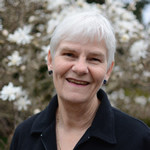Mindfulness generally refers to the ‘practice and capacity of being fully engaged in this moment without any judgment of what is present, either in consciousness or in form’. There are also many mindful practices which stem from Buddhism, including compassion, generosity and reverence for life.
Being mindful, or present, is a starting point to becoming more self- aware. Most people tend to carry on with their daily activities without much awareness of what is going on in their thoughts and emotions. Thoughts are very powerful and unchecked, can lead to anxiety and depression. Thought cycles, or habitual thinking, can lead to a downward spiral of worry, regret, guilt, fear, panic or a complete shut down of emotions. Without being aware of what is going on inside, we are at the mercy of whatever emotional wind is blowing.
What tends to happen is that whatever thought cycle or emotion we find ourselves in, we blame on some outside event or another person’s behavior. When we do this, we can feel stuck or paralyzed, caught in the whirlwind. When we take a step back, and objectively look at our thoughts and begin to see the relationship between our thoughts and emotions, we can see that our inner experience is actually within our control. We choose in each moment what thoughts and emotions to pay attention to. It a choice whether or not we want to blame or judge someone for our experience. In the end, it is all a choice.
Mindfulness has a full range of benefits. People who practice mindfulness tend to be less anxious, less depressed, and have higher self-esteem, more vitality and overall more life happiness. Couples who practice mindfulness have been shown to be more satisfied with their relationship as well. (A Mind for Love, Psychology Today February 2016.) Greater clarity, and a greater ability to focus are also common.‘Sign me up’, you say. But exactly how does one begin? How do you learn to be fully present in the moment? I believe that a great starting point is curiosity and a strong desire to learn about oneself: one’s desires, motivations, beliefs and concepts.
A great first step is Mindfulness Meditation. In this form of meditation, one would choose a quiet place and a comfortable seated position and close your eyes. Start by bringing your attention away from the busyness of the day, and into the present moment. Bringing your awareness to your body and the room around you. Notice the temperature of the air against your face and your hands. Notice any sounds in the room. Notice the feel of the fold of your clothing against your skin. Notice the weight of your legs, arms and buttocks on the chair or on the floor. Give yourself a few moments to notice all these things and then bring your attention inside, to your body. What do you notice? Are there some aches and pains? Don’t do anything to try to change them necessarily. Just notice. Is there any tension? Where? Is there a part of your body that feels warmer or colder than any other part? Is there a part of your body that feels relaxed?
Then bring your attention to your breath. Notice the air coming in through your nostrils. Is the air warm or cool? Be aware of the air flowing through the nasal passages and into your chest. Notice your chest rising as the air comes in. Notice the lower part of your lungs and your abdomen as they rise with the incoming air. Notice if there is a natural pause before the air then moves out of your lungs and back up the windpipe and through the nasal passage and back out through the nostrils. Notice the temperature of the air as it leaves your body. Notice if any sound is made through this process.
As you are paying attention to your breath, you will notice, sooner or later, that you are no longer focusing on the breath, you are thinking. This is a natural part of this meditation. As you notice you are thinking, become curious about your thoughts. See your thoughts as if on a television screen floating by like clouds on a warm summer day. Don’t judge your thoughts, or try to get rid of them, or try to change them in any way. Simply notice them. And then, gently, and without any judgment, bring your attention back to your breath. Notice the flow of air in through the nostrils, as it makes it way to the lungs, and then notice the flow as it moves out again. The next time you notice that you are thinking, then again become curious about the thoughts and gently bring you attention back to your breath.
Continue for up to 30-40 minutes. If this is your first time meditating, then try 5 minutes at first. You can increase as your body and ability to focus allows.
Eventually, mindfulness will become a continuous practice and has the ability to completely change your life.
“If we examine ourselves every day with mindfulness and mental alertness, checking our thoughts, motivations, and their manifestations in external behavior, a possibility for change and self-improvement can open within us. Although I myself cannot claim with confidence to have made any remarkable progress over the years, my desire and determination to change and improve is always firm. From early morning until I go to bed and in all situations of life, I always try to check my motivation and be mindful and present in the moment. Personally, I find this to be very helpful in my own life.”
—The Dalai Lama, The World of Tibetan Buddhism
 Alison Etter MEd, RPC, RTC
Alison Etter MEd, RPC, RTC
Counsellor and Healer, Breakthrough Counselling and Coaching
250-324-3040
Website
Email Alison
See all articles by Alison Etter



